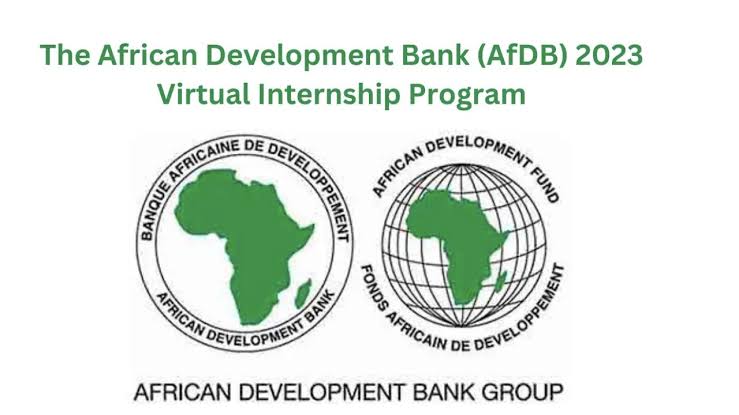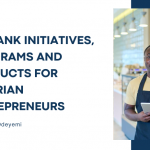It is now clear that promoting an enabling environment for MSMEs is crucial for economic recovery, poverty reduction and long-term stability
To face the unprecedented new global challenges brought about by the COVID-19 pandemic, the spotlight has turned to the importance of the private sector in building resilience in transition states and in particular, the crucial role of supporting micro, small and medium-sized enterprises (MSMEs).
Indeed, the latter have seen their already pre-existing fragility aggravated by the consequences of the health crisis. It is now clear that promoting an enabling environment for MSMEs is crucial for economic recovery, poverty reduction and long-term stability. Efforts are now being made to empower SMEs, especially those owned or created by women and/or young people, in order to harness their potential for job creation, stimulate innovation and strengthen local economies, and thereby pave the way for a more resilient post-pandemic era on the African continent.
Between 2020 and 2022, the Transition Support Facility (TSF) (https://apo-opa.info/3CSPRhx), a disbursement mechanism designed to help countries consolidate peace, build resilient institutions, stabilize their economies and lay the foundations for inclusive growth, funded projects addressing the imperative of building resilience in more than 10 African states in transition, countries where the main development challenge is fragility – Madagascar, South Sudan, Mozambique, Burundi, Comoros, Sierra Leone, Gambia, Central African Republic, Chad, Democratic Republic of Congo and Liberia. These projects financed by the TAF are based on initiatives in favor of the development of SMEs and the private sector introduced as early as 2016. These projects extended often over a minimum of 24 months, and deployed capacity building measures as well as technical assistance in terms of skills acquisition, access to markets and financing.
Strengthen resilience in African states in transition, by focusing on entrepreneurship and vocational training, access for vulnerable populations to markets and financing
In Liberia, most of the obstacles facing young people who wish to embark on entrepreneurship are linked to the limited availability of business development training and reduced access to finance. As part of a project initiated in 2016, academic, technical, vocational and functional entrepreneurship centers and programs targeted and improved the employability and skill levels of nearly 2,000 young people in Liberia.
From 2021, Nimba County University, one of the institutions benefiting from this project to promote entrepreneurship and employment of young people, organized a capacity-building competition to stimulate the creation and development of new innovative business models. The reward for winners was the start-up capital to launch their business.
Capacity building is also essential for developing entrepreneurship and self-reliance among populations severely affected by conflict and instability, such as internally displaced persons and refugees.
In Mozambique, a capacity building project funded by the TSF promotes economic inclusion and self-reliance in refugee and internally displaced person camps, as well as host communities, in the provinces of Nampula and Cabo Delgado. Through capacity building and market linkages, the project aims to foster the emergence of inclusive economic opportunities for refugees, displaced people and the private and public sectors at the local level. By improving the ability of refugees, IDPs and their host communities to respond to market demand, the project aims to create more sustainable opportunities. At the same time, the private sector will be able to benefit from greater access to stable supply chains.
In South Sudan, a Private Sector Development Project was launched in a fragile context in 2021. At an estimated cost of $2.145 million and implemented over 36 months, the project will improve employment opportunities, incomes and market access for young people and women. This project aims, on the one hand, to support the creation and development of 300 micro and small enterprises (MSEs), through business development services, technical training, market links and access to microfinance institutions for financing. On the other hand, the project aims to strengthen the institutional capacities of government and private sector entities through the promotion of MSE development and the economic empowerment of women and youth.
This is also the case of the “Africa Business Linkages” program” (ABL) , a pilot program deployed in Madagascar to improve the skills, governance and operations of micro, small and medium-sized enterprises, leveraging the private sector ecosystem. By developing forward and backward market linkages, the program provides MSMEs – especially those headed by women (at least 40%) – with access to markets and finance. This should contribute significantly to an increase in the value and the number of contracts concluded by MSMEs, an increase in demand for goods and services of local origin – especially those produced by young people and women – and greater access to finance, thanks to existing programs and the resources of local banks.
Building Resilience in Intra-African Cross-Border Trade and Investments
Free trade agreements, such as the African Continental Free Trade Area (AfCFTA) adopted in 2018, are often greeted with enthusiasm, displaying ambitious objectives and programs planned over several years. However, the success of such initiatives aimed at improving the economy, depends largely on the ability of actors involved and their constraints. These constraints prove to be much more pernicious in states in transition or in situations of fragility. Here again, SMEs and the private sector in these countries clearly stand out as essential channels for developing their resilience and their ability to strengthen their economic participation in free trade areas.
Since early 2022, four states in transition – Burundi, Comoros, Gambia and Sierra Leone – have benefited from a TSF Pillar III-funded project (estimated cost of $2.9 million) aimed at boosting trade and investment by providing technical assistance and capacity building. Support focuses on building regional trade readiness with a gender-sensitive perspective, filling capacity gaps, streamlining processes and digitizing services in national agencies dedicated to trade, SMEs and investment promotion. The project is expected to continue until December 2023.
The potential of SMEs to spur economic recovery, reduce poverty and foster long-term stability in transitional states has been demonstrated and efforts are now geared towards empowering more of them, especially those led by women and youth. In several African states, projects funded by the Transition Support Facility are playing a key role in building resilience, such as in Liberia, Mozambique and South Sudan.
By providing capacity building, access to markets and expanded finance, and encouraging entrepreneurship, these initiatives are producing tangible improvements in skills, jobs and economic inclusion among socially vulnerable populations. Another feature of these TSF-funded projects is that they focus on improving each country’s level of preparedness for cross-border trade and investment under free trade initiatives like the AfCFTA.
For more information on the Bank Group’s 3rd Strategy to Address Fragility and Build Resilience in Africa, which runs from 2022 to 2026, and the Transition Support Facility (TSF), click here (https://apo-opa.info/3pplYCp).









